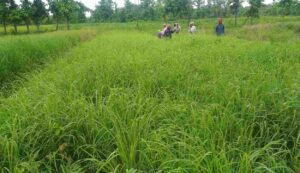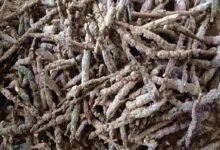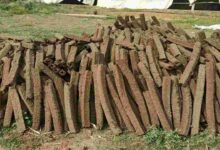Cultivation of Lemon Grass: This farmer earned profits worth lakhs by cultivating lemon grass on barren land
Cultivation of Lemon Grass: Even with less land and less labor, a substantial income may be earned via farming if it is done properly. This miracle was made possible by the tenacity of Raghav Sharad Devasthale, a native of Matamur, a little hamlet in Khargone, Madhya Pradesh. Raghav abandoned conventional farming and began growing lemongrass organically on bare land. Today, he makes thousands of rupees a year from this venture. He is now teaching numerous farmers its methods.

According to Raghav Sharad Devasthale, he had no agricultural experience before moving to the hamlet and became enamored with the fields. Since no one in the family farmed, he purchased a bigha of land close to the hamlet when he made the decision to do so. This land had been unoccupied for a considerable amount of time. He first considered growing a crop that needs less labor and yields a respectable return rather than conventional crops like wheat or maize, taking into account the lack of water and the condition of the land.
Five years of production from a single seed
He said that during a farmer’s market around this period, he learned about lemongrass. This crop is prized for its unique scent, and its oil is used to make herbal drinks, soaps, medications, and cosmetics. The unique feature of this crop was its ability to thrive in any kind of soil and its five-year harvesting window. Since Raghav believed this information to be accurate, he began growing lemongrass on half a bigha of land after ordering seeds from outside.
Making money by selling dried leaves
Raghav has only used organic gardening methods. There was no usage of chemical pesticides or fertilizers. Harvesting occurred four times in the first year alone, and each time dried leaves were sold, around 20,000 to 25,000 rupees were made. In contrast to conventional crops, which need two to three bighas of land and a great deal of labor to produce, this indicates that an income of almost one lakh rupees was made in the first year alone from the area that was deemed unproductive.
Minimal chance of loss
According to Raghav, lemongrass’s greatest advantage is how little maintenance it needs. It may be picked every three months after planting. The crop is sold to oil extraction facilities as it dries, and these businesses then distribute it to markets and cosmetic manufacturers. Loss risk is also minimal since lemongrass’s market price is constant.

